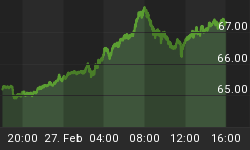The markets interpreted today's German business sentiment index correctly - initial relief at the strength of the headline number gave way to some caution on closer inspection of the expectations components - but they are over-optimistic if they think that the Ifo results, combined with the latest German inflation data, will stay the ECB's hand next week or again on December 7.
The Ifo business survey found that optimism about German economic conditions remains intact, with the main index slipping only slightly, from 105.0 last month to 104.9. This is down from the 15-year-high seen in June (106.8), but is still pretty robust, especially compared with the 96.6 reading seen a year ago. The current conditions index climbed all the way to 111.3 (108.7 in August and 96.3 a year ago), but the forward-looking expectations index dropped from 101.4 to just 98.9. Interestingly, the retailing component of the main index saw some recovery, improving to -3.7 from -5.6 (and compared with a depressed 20.8 in September 2005), while the manufacturing component held up well, coming in at 18.4 in September versus 18.6 in August and a mere 2.3 a year ago. Most of the dip in the headline number can be attributed to the construction sector, which slid from -15.7 last month to -18.5 this month.

All told, the index points to a still-robust Euro-zone economy heading into Q4 and the early months of 2007. The dip in the expectations index certainly can't be ignored - it reflects a combination of concerns about slowing US demand for the German export machine, the unknown effects of a three percentage point hike in the German VAT rate starting in January, and how much further Euro-zone interest rates will rise. But the surprise is, if anything, that expectations haven't slid still further.
Last week's ZEW investor sentiment index slumped to a near-eight-year low of -22.2, but the ZEW's wild swings are starting to give it a bad reputation. It certainly isn't one of our favored indicators-to-watch. We prefer to focus on the Ifo and on the Belgian National Bank's business confidence indicator, which is also showing some resilience. Could it be that German exporters will fare better than feared next year, even if US demand tanks?

Thanks to Belgium's strong trade ties with its neighbors, the BNB's business confidence index is a reliable leading indicator - about six months out - for GDP growth in the Euro-zone as a whole. September's survey (released last Friday) surprised on the upside, with the overall index recovering some from August's slide to 3.1, to a healthier reading of 4.5. The manufacturing sub-component rose from 3.3 to 5.0 while the retailing sub-component jumped from a sluggish 1.5 in August to 4.2 in September. Interestingly, the trend in manufacturing export orders rose to a seasonally-adjusted +9 (from -1 in August and +6 in July). The recovery in the overall confidence index and its components, after a two-month retreat from June's historical highs, bodes well for the outlook over the next six months, particularly if it is sustained in the October survey. A renewed slide in October will cement concerns that Euro-zone GDP growth will be much weaker next year. Even so, this leading indicator has been firmly in positive territory for eight months straight, suggesting the Euro-zone may also surprise on the upside, at least into mid-2007.
Meanwhile, the drop in German inflation - preliminary data showed the EU-harmonized index down 0.4% on the month and rising just 1.1% on the year - points to a lower Euro-zone inflation number (the flash estimate comes out September 29). German inflation counts for nearly a third of the Euro-zone price index.

This month's weaker inflation was almost entirely the result of the drop in oil costs, itself the result of easing tensions in parts of the Middle East, and a relatively-benign US hurricane season so far. The same factors will probably pull Euro-zone inflation below 2.0%. But the weakening of global oil prices is unlikely to continue for much longer. And, the ECB remains focused on the medium-term horizon, where it continues to see rising inflation pressures - including that three percentage point hike in German VAT rates, which is bound to boost German consumer prices next year.
Members of the ECB's Governing Council continue to make hawkish statements - in particular Governor Trichet, who has been reiterating his "strong vigilance" mantra, which pretty much guarantees another 25bp rate hike on October 5, and probably again on December 7. If, as we expect, global oil prices bounce back from their recent slide later in Q4, and if Euro-zone indices continue to point to firm inflation numbers as we head into next year, a Q1 2007 rate hike also is in the cards.















